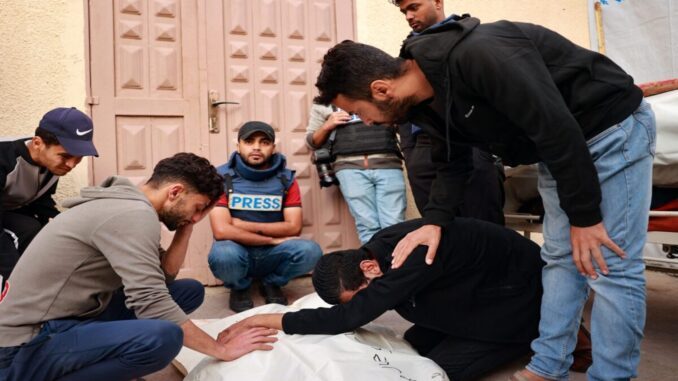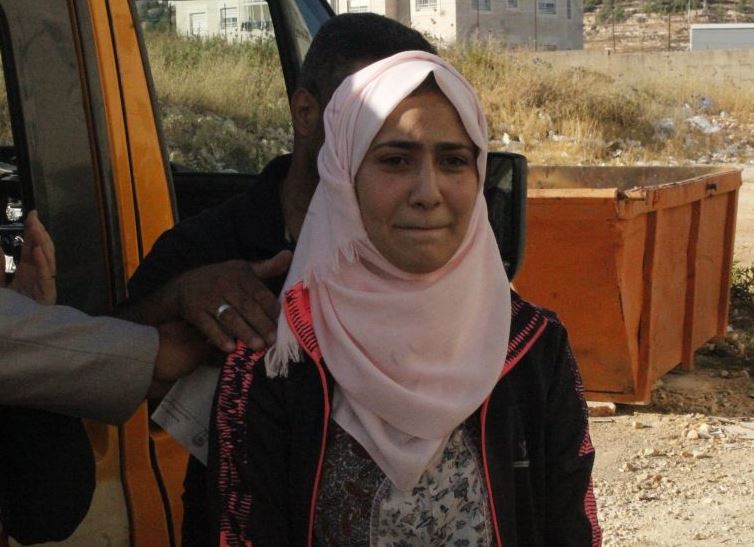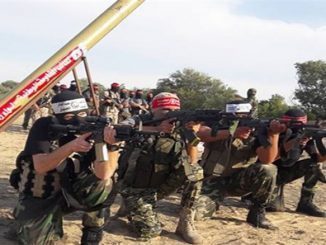
Gaza authorities, on Monday, said the death toll of Palestinians resulting from the deadly Israeli strikes on the enclave has exceeded 15,000 people, in addition to thousands of others still missing under the rubble, reported Anadolu Agency.
In a statement, the Gaza-based Government Media Office said the death toll includes 6,150 children and 4,000 women, in addition to untold numbers of corpses scattered in the streets.
It added that there are also some 7,000 missing people under the rubble, including 4,700 children and women.
The statement noted that, among the dead Palestinians, are 207 medical staffers, 26 members of civil defense rescue teams, and 70 journalists.
More than 36,000 other Palestinians were also injured, 75 per cent of them children and women, the office added.
As for residential buildings, it said nearly 50,000 house units were completely destroyed in addition to nearly 240,000 house units severely damaged.
A total of 88 mosques were completely destroyed and 174 others partially destroyed by Israeli bombing across Gaza, in addition to three churches targeted by the Israeli army.
Houses of worship, as well as residences, are supposed to be off-limits to attacks under the rules of war. Israel claimed that Resistance group, Hamas, used these buildings as bases but, to date, its evidence of this has left most observers unconvinced.
Israel launched a massive military campaign in the Gaza Strip following a cross-border attack by Hamas on 7 October. The official Israeli death toll stands at 1,200.
Stop the war
Shortly after the start of a four-day ceasefire in the war on Gaza, the prime ministers of Spain and Belgium, Pedro Sanchez and Alexander De Croo, appeared in a joint press conference at the Rafah Crossing.
While Sanchez described “what is happening (as) a disaster,” De Croo called for a “permanent cessation of hostilities” and for an end to the killing of children.
Equally significant, the two European leaders declared that “we may decide to recognise the State of Palestine, if the European Union does not.”
However, Israel was not pleased by the evolving European position. It immediately summoned the ambassadors of both countries and sharply ‘rebuked’ them.
This exaggerated response comes to show that Israel is not willing to give Europe even the narrowest of margins – as in condemning the killing of children or, expecting some kind of a peaceful settlement centered round Palestinian sovereignty.
Spain and Belgium’s phrase of “we may decide” to recognise Palestine even without EU consensus is indicative of an actual foreign policy schism within Europe itself. It turned out that not all EU governments have the same tolerance towards the genocide in Gaza as, for example, Germany and Britain.
Interestingly, other EU officials, too, are calling for a Palestinian State, though their intention is neither to ensure Palestinian freedom nor to safeguard Palestinian rights.
EU chief diplomat Josep Borrell, for example, argued on 20 November that “the creation of a Palestinian state would be the best way of ensuring Israel’s security”.
Even the former British prime minister, now secretary of state for foreign affairs, used similar logic. Israel will not have security unless it guarantees “long-term safety, security and stability” for the Palestinian people, David Cameron said.
Regardless of the reasoning behind the growing emphasis on a ‘solution’ and rights for the Palestinians, this language was almost entirely absent from the Western political discourse prior to 7 October.
The truth is that Palestinians have succeeded, through their resistance and resilience, to reassert Palestine on the global agenda.



